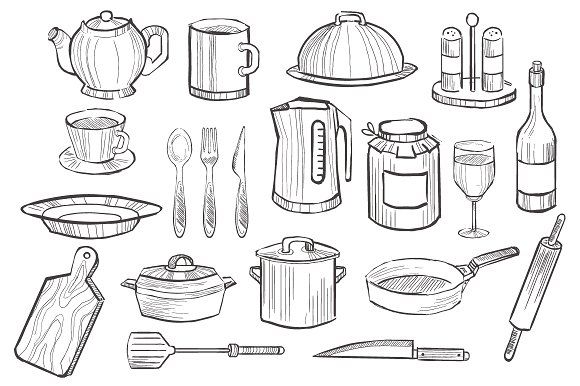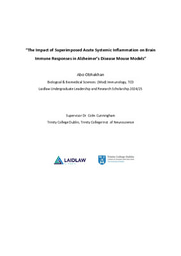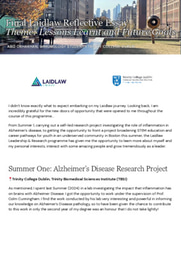Summer 1 Research: Progress is a Winding Road (Alzheimer's Disease and neuroinflammation)

So what did I do? My Reseach project aimed to highlight the differences in the ways the Alzheimer's diseased brain responds to a secondary infection. I had four groups of mice; two groups were transgenic Alzheimer’s Disease models (APP/PS1). The other two were wild-type ('normal') mice. All of these mice were aged to 14-16 months, since Alzheimer’s disease is typically a disease of older age. Within these groups half of the mice were treated with Lipopolysaccharide (LPS), a component of gram-negative bacteria that elicits an immune response, and half with sterile saline.
I used a method of visualisation called immunohistochemistry to visualise inflammatory molecules in the brains, and used qPCR to assess protein production. Overall I saw some subtle differences between how the Alzheimer's diseased brain responds to infection and how the normal brain does (which may be do to the mice not being given a stong enough dosage of LPS), but the major observations I made suggest that the Alzheimer's diseased brain is continuously in a heightened/highly active immune state due to the presence of the Ameloid Beta plaques in the brain (which charachterise the disease).
The concept of viewing experimental study through the lens of cooking was a recurring theme that presented itself to me time and time again.
Take the laboratory as the kitchen, the lab coat as an apron and the experimental protocol as the cooking book. You need to first make sure you have all of your ingredients; your chemicals, tissues, equipment etc…
Then you need to follow each step in the protocol carefully, taking particular care with your measurements. You mix things together, leave things to ‘cook’ and sometimes may have to prepare multiple elements of your ‘dish’ at the same time. What you put into your cooking is what you get out of it, and if it doesn't taste like it should, you need to reflect on what may have gone wrong. We constantly refine these protocols, or ‘recipes’ to make these processes faster and more efficient.
Just as chefs mock up new recipes and share them to the world to further the world of culinary arts, so do scientists create new experiments and share them with the world to further fields of science.

Of course experimentation does not always go as planned. Experimentation requires learning from each attempt, making adjustments to improve the overall outcome. This process is fundamental to mastering scientific research. Failure can be frustrating as it was for me at the beginning of my Summer 1 Project. I set out with very ambitious goals for my research project. I intended to look at the effects at different timepoints following infection, but also the psychological implications through the analysis of cognitive data.
Early in my research project I began to experience roadblocks that made these goals that I had set out to achieve seem impossible. At first, the gaps in my knowledge and my inability to get every single thing that I wanted to do in the timeframe that I had created for myself was extremely frustrating. I had to continuously revise my plan again, and again as self-imposed deadlines would pass, or if I wasn’t happy with my results. This led to feelings of inadequacy and major imposter syndrome.
I soon realised, however, that research or progress is not linear. It’s not meant to be. The whole essence of research is finding things out - if the answers were already clear there would be no need for research/experimentation in the first place. Project management and personal development sessions provided to me from the Laidlaw Leadership Development Programme helped me to clarify what I wanted to get out of this experience. I wanted to obtain reliable results, even if they were not the results I went into the project expecting, I wanted to broaden my knowledge in this field and I wanted to gain confidence and conviction in my ability to do these things. I realigned my goals, and chose to explore the differences in immune responses in the brain of the mice after 2 hours. I went into subsequent experiments with an open mind.
I believe that I have achieved all three things I set out to do. I obtained results that elucidated the pathological effects of neuroinflammation in Alzheimer's disease. I was also able to share many discussions with post doctorates and students in the lab that I greatly cherish, moments that not only broadened my knowledge in the field of neuroscience, but that broadened my understanding of research as a whole. And I grew in confidence that I am capable of carrying out research in the future.
One achievement that I overlooked going into this experience was growing in resilience. Failing is important as it is key to understanding. A lot of the time you can learn more from what went wrong rather than from what went perfectly. Our mistakes highlight the flaws in our understanding of processes and once we understand what went wrong, we don’t make that same mistake again.
On a larger scale, this is much how daily life works. We constantly make mistake we learn from and as a result, we GROW.




Please sign in
If you are a registered user on Laidlaw Scholars Network, please sign in